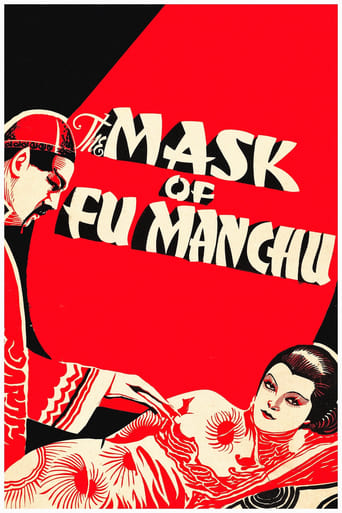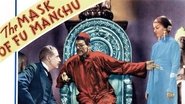MikeMagi
Is it possible to be racist and entertaining? Sure. And if you doubt it, take a look at "The Mask of Fu Manchu." On one side, we have a group of nobly dedicated scientists and historians searching for the gold mask and sword once wielded by Ghengis Khan. On the other, we have cunningly evil Boris Karloff, his sloe-eyed daughter, Myrna Loy, and a horde of thugs determined to wipe out the white race. Any doubt who's gonna' come out on top? Fortunately, Karloff's performance in the title role is so demonically wicked, you're almost tempted to say let the villains win for a change. But no, our lucky band of crypt-invaders including Lewis Stone and Charles Starret (before he became a full-time cowboy) aren't about to allow a few thousand raving thuggies get the upper hand. No way this movie could be made now. But back in those more innocent -- and dreadfully naive days -- it wasn't a problem. And even if the racism makes you cringe, Karloff's performance is a class act.
Sean Fay
This film is perhaps even more politically incorrect than its source material. Nayland Smith and Lionel Barton have no qualms from stealing from the tomb of Genghis Khan, a man who lived on the other side of the world and to whom they have no connection. In their quest of thievery, they readily enlist half-naked Asian men to help, never once even attempting to understand their culture, customs, or religion. For Smith, Sheila, Barton, and the rest --- Fu Manchu is a "yellow beast" and his people savages. The film's climax sees Smith and crew electrocute not only Fu Manchu but the entire crowd as well, making it clear that mass murder is totally okay, so long as it's against yellow people. The only good Asians are either dead, working for them, or as we see at the film's end, stupid. Aside from the plot, various other aspects of the film are problematic as well. Fu Manchu and his daughter are both played by white actors in heavy makeup --- the Asian equivalent of Blackface. Fu Manchu is purportedly Chinese while at the same time being the villain for the whole of "the East," as if director Charles Brabin doesn't realize that Asia is an entire continent comprised of all sorts of different countries. Add in Fu Manchu's black servants, and it's clear Brabin has absolutely no idea what "the East" is like at all.Is it entertaining? Sure, in a 1930's campy kind of way. But with a racist message at the core, it can't be considered a good film.
Min Lee
The comedic and even incredulous moments in the film make it an enjoyable watch. Yet, multiple moments still disturb me due to the repeated employments of orientalist stereotypes. By these stereotypes, I don't only mean ones such as Asians having mono-lids. I am not even commenting on how Fu Manchu himself looks because in the book written by Sax Rohmer, he wasn't described as a very typical Chinese anyways. However, I was disturbed by how the other characters that played alongside Fu looked. For one, in the scenes involving his daughter, she carried a very confused identity. In one moment, she was dressed in a Chinese traditional costume (though it was brought to an extreme with the traditional 'empress-like' head gear). In the next moment, she was dressed in an Indian costume. The multiple costumes that she wore paralleled the film's conflation of the East with anything that is not the West (i.e. not white). From the featuring of Africans, to Indians, to Middle-Easterners and Chinese, all these characters were classified as the 'East', ignoring all the differences. Their agencies are also suppressed because they seemingly blindly adoring Fu. If these confusing multiple races had not been featured, this film would have been a more enjoyable watch.
cmxmaeda
In comparison to the original Sax Rohmer novel that the movie is based off of, the film provides an interesting perspective. When reading the novel, one can only imagine what the characters and settings look like. In the film, I was particularly intrigued about the use of Caucasian actors/actresses to portray the characters from the Orient, including Dr. Fu Manchu himself. Actors who were actually of Asian decent were only given non-speaking roles, such as the laborers who help the British dig for Genghis Kahn's grave. The movie utilizes many stereotypes about the East and this bias seemed to come across very clearly through the attempts of the white actors to portray the Eastern characters. While this made the plot a bit laughable, it also gave true insight to how the East was viewed from the British perspective.




